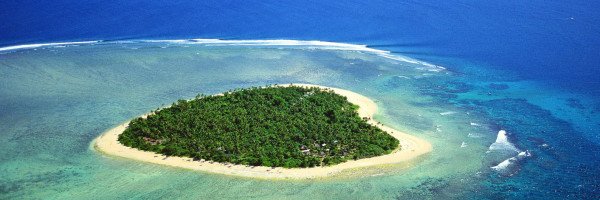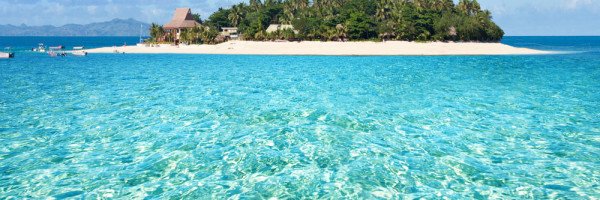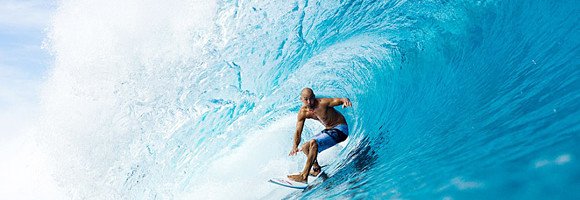Understanding Fiji’s Health Risks and Precautions
When planning your Fiji adventure, it’s essential to be aware of the health risks associated with the region. Though Fiji is generally safe, certain health precautions can help you enjoy your trip without worry. Common health concerns include mosquito-borne diseases like dengue fever and Zika virus. As a New Zealander, it’s crucial to familiarize yourself with the symptoms and preventive measures. Before you travel, consult with your doctor regarding vaccinations and medications. The New Zealand Ministry of Foreign Affairs and Trade recommends vaccinations for hepatitis A, hepatitis B, and typhoid. Additionally, ensure your tetanus and diphtheria vaccinations are up-to-date. You can find more information about health risks and vaccinations on the Fiji Islands website. When you arrive, use insect repellent containing DEET, wear long-sleeved shirts and pants in the evening, and stay in accommodations with proper mosquito netting. These steps will significantly reduce your risk of insect-borne diseases, allowing you to focus on enjoying the beautiful landscapes and rich culture of Fiji.Preparing Your First Aid Kit
A well-stocked first aid kit is essential for any adventure, especially when traveling to remote areas like many of the islands in Fiji. Start by including the basics: adhesive bandages, sterile gauze, antiseptic wipes, and tape. Given the tropical climate, consider adding treatments for minor burns, sunburn relief, and anti-itch cream for insect bites. For New Zealanders, allergy medications are also crucial, particularly if you have a known allergy to pollen or food items. Don’t forget to include any prescription medications you may need, alongside a copy of your prescriptions just in case you need refills while away. Additionally, consider packing oral rehydration salts to combat dehydration due to heat or mild illness. A good travel first aid kit should also include a thermometer and any necessary personal hygiene items. For specific guidelines on what to include, the Fiji Islands site offers useful tips on preparing for your trip.Travel Insurance: Why It’s a Must
Before you embark on your Fijian adventure, securing travel insurance is a critical step that New Zealanders should not overlook. Travel insurance provides peace of mind, covering unexpected medical expenses, trip cancellations, and lost luggage. When choosing a policy, ensure it covers emergency medical evacuation, especially if you plan on engaging in activities such as scuba diving or hiking. Several insurance providers cater specifically to Kiwis and understand the unique needs of travelers from New Zealand. It’s advisable to read reviews and compare policies to find one that suits your travel style and budget. Furthermore, familiarize yourself with the claims process in case something goes wrong. Knowing how to contact your insurance provider while in Fiji can save you valuable time and stress. For more information on travel insurance options and tips for New Zealanders, you can check the Fiji Islands website.Sun Safety and Hydration Tips
Fiji’s tropical climate means you’ll be exposed to strong sunlight, making sun safety a priority for your health. As a New Zealander, you may already be aware of the risks of UV exposure, but it’s even more critical in Fiji, where the sun can be intense. Always apply sunscreen with a high SPF before heading out, and reapply every two hours, especially if you’re swimming or sweating. In addition to sunscreen, wearing protective clothing such as a wide-brimmed hat and UV-blocking sunglasses can significantly reduce your risk of sunburn. Seek shade during peak hours, generally between 10 AM and 4 PM, when the sun’s rays are strongest. Hydration is equally crucial in Fiji’s warm climate. Drink plenty of water throughout the day, especially if you’re engaging in outdoor activities. Carry a reusable water bottle to stay hydrated on the go. If you’re unsure about the quality of tap water, opt for bottled water. More hydration tips and sun safety resources can be found on the Fiji Islands webpage.Food and Water Safety
Enjoying Fiji’s culinary delights is one of the highlights of your trip, but it’s essential to ensure that you’re consuming safe food and water. As a New Zealander, you may be used to high food safety standards, so it’s vital to exercise caution while traveling. Stick to well-cooked foods and avoid street vendors unless you can verify their hygiene practices. When it comes to water, always drink bottled or filtered water, particularly in areas where tap water quality may be questionable. Avoid ice in drinks unless you’re certain it’s made from purified water. If you enjoy fresh fruits and vegetables, peel them yourself or choose options that have been thoroughly washed. Be mindful of your eating habits, as sudden changes in diet can lead to stomach issues. If you’re unsure about a dish or have food allergies, don’t hesitate to ask the staff about ingredients. For additional food safety tips and guidelines, refer to the Fiji Islands site to ensure a safe and enjoyable culinary experience.Emergency Contacts and Local Healthcare Facilities
Before you embark on your Fiji adventure, familiarize yourself with local emergency contacts and healthcare facilities. In case of a medical emergency, knowing the local procedures can be lifesaving. The emergency number for police and ambulance services in Fiji is 911. Additionally, it’s wise to have the contact details of your accommodation’s front desk, as they can assist you in an emergency. Research local healthcare facilities in the area you’ll be visiting. Larger cities like Suva and Nadi have hospitals with international standards, but smaller islands may only have clinics with limited services. If you’re planning to visit remote areas, consider having a plan for evacuation or access to medical help. As a New Zealander, it’s also advisable to carry your travel insurance details, including policy numbers and emergency contact information, as this can expedite your care. To gain insights into local healthcare resources, check out the Fiji Islands website, which provides valuable tips for travelers.Cultural Sensitivity and Respecting Local Customs
Understanding and respecting local customs is crucial when visiting Fiji, as it enhances your experience and fosters goodwill with the local community. Fijians are known for their hospitality, but being aware of cultural norms can avoid unintentional disrespect. For example, it is customary to remove your shoes before entering someone’s home or a place of worship. Additionally, dress modestly, especially in rural areas and during visits to sacred sites. When participating in traditional ceremonies or village visits, it’s wise to ask for guidance on appropriate behavior from your guide or host. Engaging with the local culture enriches your adventure, so take the time to learn a few Fijian phrases and understand the significance of local traditions. Your efforts will be appreciated, and it will create a more meaningful connection with the people. For more insights on cultural practices and respecting local customs, visit the Fiji Islands website, which offers a comprehensive Fiji arrival guide.FAQs
What health precautions should I take before traveling to Fiji?
Before traveling to Fiji, it’s important to check with your healthcare provider about necessary vaccinations and medications. Common recommendations include vaccines for hepatitis A, hepatitis B, typhoid, and possibly malaria depending on your travel itinerary. Consulting your doctor at least 4-6 weeks before your departure is advisable to ensure you have enough time for any necessary vaccinations.
Do I need travel insurance for my trip to Fiji?
Yes, obtaining travel insurance is highly recommended for your Fiji adventure. Travel insurance can cover medical emergencies, trip cancellations, lost luggage, and other unforeseen events. Make sure to choose a policy that includes coverage for activities you plan to partake in, such as snorkeling, diving, or hiking.
What should I pack for health and safety while in Fiji?
When packing for Fiji, include a basic first aid kit, sunscreen, insect repellent, and any personal medications you may need. Also, consider bringing water purification tablets and a refillable water bottle to stay hydrated safely, as well as a hat and sunglasses for sun protection.
Are there any health risks associated with drinking water in Fiji?
In Fiji, it’s generally advised to drink bottled or filtered water, especially in rural areas. Tap water may not always be safe for consumption. Refer to the Fiji arrival guide for specific recommendations on safe drinking water options and local practices.
What should I know about Fiji’s healthcare facilities?
Fiji has both public and private healthcare facilities, but the quality can vary. Major cities like Suva and Nadi have better medical services. It’s wise to familiarize yourself with the nearest hospital or clinic to your accommodation. In case of a serious medical issue, evacuation to a more equipped facility may be necessary.
How can I stay safe while exploring Fiji?
To stay safe while exploring Fiji, always be aware of your surroundings and take precautions against petty theft, especially in crowded areas. It’s also advisable to follow local advice regarding swimming conditions, as some beaches may have strong currents. The Fiji arrival guide can provide insights on safe travel practices and recommended local areas to visit.
What emergency numbers should I know while in Fiji?
While in Fiji, it’s important to know the local emergency numbers. For police assistance, dial 999; for fire emergencies, call 911; and for ambulance services, you can reach 911 as well. Keep these numbers handy, and ensure your phone is charged and accessible during your travels.
References
- Fiji Islands Official Tourism Site – The official tourism website provides essential travel information, including health and safety tips for visitors to Fiji.
- New Zealand Ministry of Health – Offers guidance on health precautions and safety measures for New Zealanders traveling abroad, including tropical destinations like Fiji.
- Centers for Disease Control and Prevention (CDC) – Fiji Travel Health Information – The CDC provides updated health advisories, vaccination recommendations, and safety tips for travelers to Fiji.
- SafeTravel New Zealand – A government resource that offers safety advice, travel alerts, and health information for New Zealanders traveling internationally, including to Fiji.
- World Nomads – Fiji Travel Safety – A comprehensive guide covering health risks, safety tips, and travel insurance advice specifically for travelers heading to Fiji.







